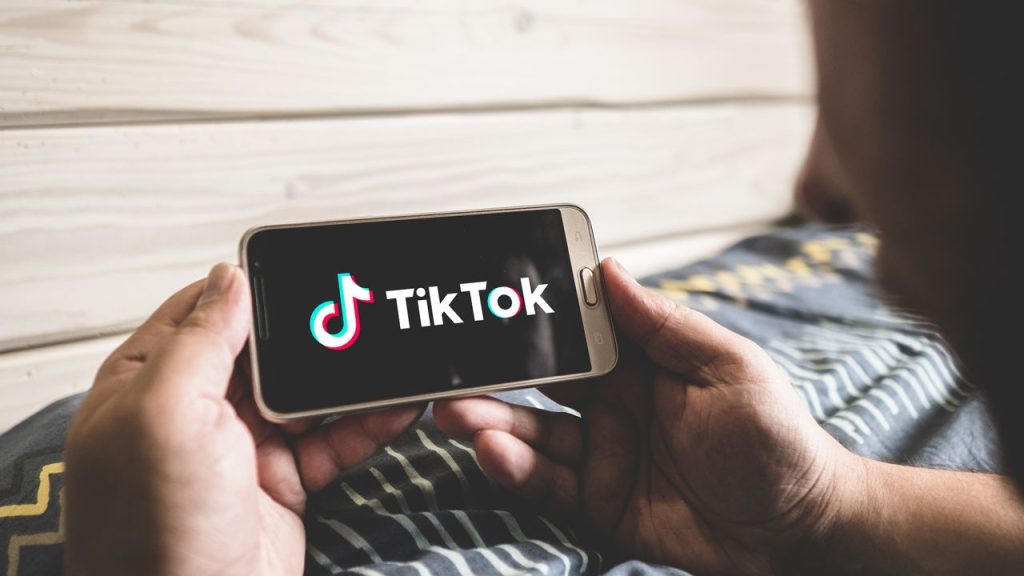TikTok has a lot of trends. For content creators, hopping on the trending wave will help them get onto the For You Page. Another strategy is to “influence” or “plug” their audience with products that they cannot live without.
However, some of these reviews may not be genuine. Some creators offer their honest opinions on TikTok by telling viewers what to avoid buying.

What is the de-influencing trend on TikTok exactly?
An open TikTok page displayed on an iPhone with a laptop in the background Whether it’s the latest Amazon gadget, becoming a fitness enthusiast, or romanticizing a picture-perfect lifestyle–influencers want you to follow suit. Influencers create an urgency for you to act on their recommendations.
De-influencing is a trend that takes a different approach to the traditional influence. This is an online movement that’s led by creators. They inform viewers of products they should avoid and why. Also, they urge people to avoid TikTok and other fads. It is to save you money and time by not buying unnecessary items or adopting unrealistic lifestyles.
Why de-Influencing is Trending on TikTok
According to some authors, the TikTok community of influencers promotes excessive consumption. There are also a number of influencers that deceive followers by posting false reviews on sponsored posts.
Authors who post de-influential reviews are honest and unfiltered. They often review skincare and makeup products. You might be surprised by some of the products not influenced fashion.
In the “de-influencing Dior video” below, an influencer shares “her hot view” of Dior cosmetics. The packaging is the best part, she claims, calling the products “garbage”.
This trend isn’t impacting the market but is still a call for TikTok users. However, there is more to it than meets the eye.
Why De-Influencing is so Impactful
In the past, TikTok was different from other social media platforms such as Instagram because creators posted original content which resonated with the users. When more creators migrate to TikTok, they bring with them consumer culture, something that users are trying not to embrace.
Creators will not share the shortcomings of their products to prevent you from experiencing the same disappointment or loss they did.
A designer joined other consumers in criticizing Olaplex for their hair. They called it useless and unnecessary. Some owners claimed that Olaplex caused their hair to be damaged or dry.
According to NPR, the report states that approximately 30 women filed a suit in the name Olaplex February 20, 2023 claiming that their products caused hair loss among other problems. A TikTok users can view the video to decide whether they want to take the risk of using the products shown.
The hashtag #deinfluencing has accumulated more than 180 millions impressions on TikTok. This shows that people want to avoid influencing the content. It is important because it gives TikTok’s users a balanced view of products and topics.
Instead, you can search TikTok for #deinfluencing and the relevant subject or product, then read what other users have to say. There are videos from both regular creators and experts, such as dermatologists and makeup artists, personal trainers and dermatologists.
De-influencing shows that influencers are willing to go to great lengths to sell a product. As an example, #mascaragate showed how far some influencers would go to get viewers to buy the product.
The month of 2023 is January. Mikayla Nogueira, a TikTok user who is influential in the community, was recently in the news after she was accused of misleadingly reviewing a mascara.
It is important to not expose yourself to unreasonable expectations. However, you can modify the settings on your TikTok FYP in order to suit your preferences.
According to the research conducted by Exploding Topics, the majority of TikTok’s users are aged between 10 and 19. This is a group that is easily persuaded. Content based on consumption can lead to unhealthy lifestyle expectations, which may negatively impact their mental health.
De-Influencing Balances TikTok
TikTok can be a fun app, but it may also lead to unhealthy habits. Before you make any financial commitments, do some research.

